Интересные факты
Живописные попугаи не перестают радовать нас своими возможностями и повадками. Что же интересного мы знаем о красочном попугае ара?
- Судя по яркому окрасу, невозможно представить, как такой заметный попугай маскируется. На деле притихших птиц никак не разглядеть в кроне деревьев, и только по падающим огрызкам фруктов становится понятно, кто спрятался в листве.
- Крепким клювом ара спокойно раскалывает самые твердые орехи, которые трудно разбить молотком.
- Интересен способ передвижения птицы: клювом она хватается за ветку, затем цепляется лапами и подтягивается повыше. Далее перемещается на следующую «ступеньку», да так быстро, что трудно уследить.
- Резкий голос попугая может подстраиваться и видоизменяться. Ара легко передразнивает животных, лает и мяукает, храпит, как человек.
- Умная птица ара – прирожденный лекарь. Она избавляется от токсинов, поглощая глину, найденную на обрывистых берегах рек.
Человек научился приручать множество птиц и животных, но крупный попугай не идет ни в какое сравнение с другими домашними питомцами. Эффектный, роскошный попугай ара похож на сказочную жар-птицу. По уровню интеллекта ему нет равных среди пернатых.
Красные ара в роли домашних питомцев
Птенцы красных ара
Неудивительно, что красные ара уже давно пользуются популярностью в роли домашних питомцев. Они красивые, обладают высоким уровнем интеллекта и являются хорошими компаньонами для людей
Их яркое оперение и личностные качества привлекают к себе внимание многих потенциальных владельцев птиц. Дружелюбные и уверенные в себе попугаи хорошо поддаются дрессировке и способны научиться выполнять многие трюки, а также усвоить несколько слов и фраз
Несмотря на то, что приобретение такого пернатого красавца может быть довольно заманчивым, следует учитывать, что красные ара прихотливы в уходе и подходят только опытным владельцам птиц, способным уделить им достаточное количество времени и внимания. В то время как уход за этими попугаями требует усилий, большинство согласится, что оно того стоит. Вознаграждением за ваши старания будет ласковая, дружелюбная и занимательная птица, которая станет вашим товарищем по жизни.
Если вы считаете, что красный ара сможет стать вам именно тем пернатым другом, которого вы ищете, свяжитесь с местными заводчиками и проконсультируйтесь с ними. Они смогут ответить на любые ваши вопросы относительно ухода и содержания этих величественных птиц.
What Is the Meaning of Ara Ara?
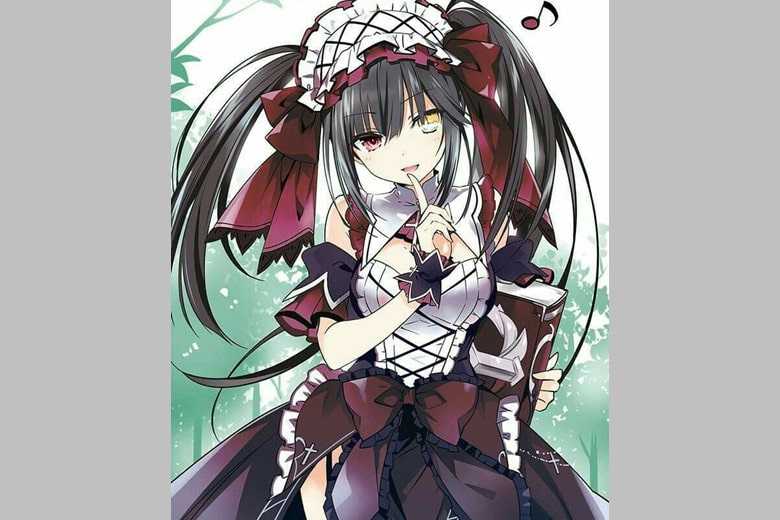
Image source:
If you’ve seen a lot of anime, you might be familiar with the most popular contextual meaning. And that context is cute and dashing anime boys who make women’s hearts flutter with infatuation, excitement, or even just arouse simple amusement. The term is usually used by older women when referring to younger men.
Japanese Meanings
#1. According to Linguaholic, there are three separate words in the Japanese language that are pronounced “ara ara.” When used without exclamation or by men, it usually means the adverb for rough, “roughly.”
#2. With the Japanese equivalent of suffixes like “shii,” “ara ara shii” means rough and violent. It’s a whole other meaning from how it’s used in anime.
#3. The third and final meaning for the term “ara ara” in Japanese translates to “oh my goodness” when used with some kind of exclamation. If you’re the type of person that says “oh my god” often, you’ve already been using ara ara.
Fun fact: “Ara” is also a variety of high-end fish consumed in Japan.
Meaning in the West
Ara Ara means “oh my,” “my my,” or “oh my goodness” but in a flirtatious manner and it’s a feminine term used more often by women referring to cute boys.
Although the Japanese translation is “oh my goodness,” you cannot use ara ara as a perfect substitute for the English meaning of that word. It has a mildly flirtatious connotation even when employed sarcastically.
Simply put, you cannot say “ara ara” for every situation that warrants an “oh my” or “oh my goodness.” That might get misconstrued and in a bad way because the meaning of the term ara ara in the West comes from anime, not from the authentic Japanese language.
Характер и образ жизни попугая ара
В природных условиях селятся в девственных, нетронутых человеком, густых тропических лесах. Предпочитают области возле озёр и речных водоёмов. Реже можно повстречать в горной местности до субтропических широт.
Живут стаями до 100 особей, из-за массовости стаи Ар вредят плантациям фруктовых деревьев. Предпочитают жить в дуплах высоко над землёй. Пары создают на долгие годы. В случае смерти партнёра – они не ищут замену и очень грустят.
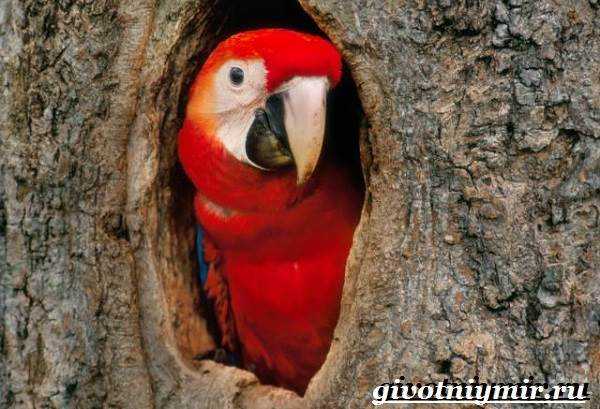
В природе попугаи ара живут в дуплах деревьев
Например, Сине-жёлтый Ара кормиться далеко от гнезда (20 км и более), вылетая рано утром и возвращаясь домой после заката. В полдень они прячутся от палящего солнца в тени больших тропических деревьев, но после несколько часов отдыха продолжают свой путь. Живут в верхних ярусах на высоте 1-2 километра над уровнем моря. Некоторые виды, например малый солдатский Ара, обитают на высоте 3-4 км.
Mutsumi Otohime
As a high school student, Mutsumi Otohime is an excellent example of a good girl with an extraordinary talent for common sense. Her odd streak of luck with sports and games is uncanny, and she never brags about it. Despite her talent and ability to be a great player, her clumsiness makes her seem uninterested in winning games or sports. Though she would probably love to go to college, she prefers to go to school with her peers.
While the characters in the series are similar, some elements are unique to the two characters. For example, the turtle, Tama-chan, has a particular language, and Yuri speaks it fluently. In addition, although Yuri’s turtle is not a human, it is often on her shoulder or head. In the manga, it is unclear if this is an actual turtle or if it is a creation of a fictional character.
Throughout the novel, Mutsumi has numerous encounters with the three boys. She initially finds herself at the Hinata House, where she meets her best friend Keitaro and is greeted by Naru. The three kids soon become friends and grow close as they study for the entrance exams for Tokyo University. Keitaro and Naru begin to develop feelings for each other, and their friendship becomes even more vital as they get older.
After graduating high school, Mutsumi returns to the Hinata inn, where she meets two classmates: Naru and Keitaro. They met and fell in love, but later, Keitaro left the Inn. After a brief time, the two were forced to make a promise. They later reunited, and she remade her promise to Keitaro and Naru on Christmas Eve.
How Did Ara Ara Become Popular?
To be honest, “ara ara” isn’t anything new for anime fans. However, several TikTokers have recently begun using this phrase as a hashtag in their videos.
The content was mostly girls saying the expression in a feminine tone, many of whom were video gamers or anime cosplayers. This trend continued for a while, and the hashtag went viral, receiving millions of views!
I doubt many people would know what that is if it weren’t for this hashtag. It’s kind of a specialty for anime because Japanese people don’t really use the phrase “ara ara” very often. Being introduced to TikTok was like its chance to be popular outside of the anime fan club.
What is the meaning of Japanese ARA ARA, Arara?
A word that repeats two interjections, “Ara”. It is a word that is spoken when you are impressed, surprised, or impressed.
It corresponds to “oh”, “oh dear”, “uh-oh”, “oh my goodness”, and “oh my god” in English.
It is often thought that women use it a lot, but in some cases men also use it.
For example,
Ara ara, taihen.
(あらあら、大変)
Oh, What happened?
Ara ara, konna ni chirakashite!
(あらあら、こんなに散らかして!)
Oh my goodness, look at this mess!
Ara ara, daijoubu desuka?
(あらあら、大丈夫ですか?)
Oh dear, are you all right?
Ara ara, wazawaza sumimasen.
(あらあら、わざわざすみません。)
Oh my goodness, thank you for doing this.
Ara ara, doushimashou.
(あらあら、どうしましょう)
Oh, what should I do?
Arara, doushite konna koto ni natta no?
(あらら、どうしてこんなことになったの?)
Oh my, why did this happen?
Arara, kyou wa umaku ikanai.
(あらら、今日はうまくいかない。)
Oh my goodness, it doesn’t work today.
Ara-, sore wa shirimasen deshita.
(あらー、それは知りませんでした。)
Oh no, I didn’t know that.
Ara-gomenne!
(あらー、ごめんね!)
Oh, sorry!
Ara-, totemo suteki na doresu ne!
(あらー、とても素敵なドレスね!)
Wow, it’s a very beautiful dress!
Ara-, koinu ga umaretano?
(あらー、子犬が産まれたの?)
Wow, puppies were born, right?
Ara-, okosan mou konna ni ookikunattano?
(あらー、お子さんもうこんなに大きくなったの?)
What? Your child has grown so big?
Ara-, sono ashi doushita no?
(あらー、その脚どうしたの?)
Oh my goodness, what happened to your leg?
Ara, arara!
(あら、あらら!)
Oh, oh!
Arararara-
(あららららー)
Ahhhhhh
“Ara” “Arara” that men can also use
There are also “ara” and “arara” that are also used by men.
The following are all used regardless of gender.
Ara ara, doushitano?
(あらあら、どうしたの?)
Oh, what’s wrong?
Ara ara, sore wa taihen deshita ne.
(あらあら、それは大変でしたね。)
Wow, that must’ve been hard.
Ara-, daijoubu desuka?
(あらー、大丈夫ですか?)
Oh my, are you okay?
Ara-, yacchaimashita-.
(あらー、やっちゃいましたー。)
Oh God, I’ve just done it.
Ara-, kore wa hidoi.
(あらー、これはひどい。)
Oh, this is terrible.
Ara-, sore wa shitsurei shimashita.
(あらー、それは失礼しました。)
Oh, I am sorry about it.
Ara-, mou tsuita no?
(あらー、もう着いたの?)
Oh, have you arrived yet?
Ara-, sonna koto itta no?
(あらー、そんなこと言ったの?)
Oh dear, did you say that?
A-rara, shiranaiyo.
(あーらら、知らないよ。)
Oh…, I won’t get involved no matter what happens.
A-rara, jibun de dounika shite ne.
(あーらら、自分でどうにかしてね。)
Oh dear, sort it out by yourself.
“Ara ara”, “ara-” and “arara” are often paraphrased as “oya oya(おやおや)” and “oya maa(おやまあ)”. These are also interjections.
“Ara-ara” is an interjection that expresses surprise, but it is often uttered in a relatively calm tone. Although the speaker is surprised, he/she is not upset and often has control over his/her emotions.
In anime and two-dimensional creative works, “Ara-ara-type characters(ara ara kei kyarakutaa: あらあら系キャラクター)” have recently appeared, and readers and fans are familiar with them.
What does “ara ara ufufu(あらあらうふふ)” mean?
“Aara ara ufufu(あらあらうふふ)” is a combination of “ara ara” and “ufufu(うふふ)”. Both of these two words have existed for a long time in Japanese. It is a word often used by women.
“Ufufu” is also an interjection, a small laugh that comes out unintentionally. What “Arara ufufu” means is that there is a small surprise situation, but it’s a good thing, so a laugh came out unintentionally.
It may also be used in a different sense. For example, suppose someone does something that isn’t very pleasing. And the person (female) who is there say “arara ufufu” which means not to affirm or deny that behavior.
I’ve never seen a Japanese woman saying “arara ufufu”, but it seems like a technique that doesn’t disturb the mood of the place.
Characters who speak Ara ara
Speaking of classic and old anime, in Anime Love Hina the character Mutsumi Otohime usually says ara ara putting the hand in the mouth as a traditional gesture of expression.
The characters that stand out the most for their expression are Shinobu from Demon Slayer and Kurumi Tokisaki from Data A Live and Kaguya from Kaguya Sama Love Wars. Recently, characters from Hataraku Saibou have also become popular.
Some characters often speak ara ara, others often use ara in their sentences, but are not popular for speaking ara ara often.

Characters who speak Ara ara
- Alicia Florence — Aria The Animation;
- Benio Yonomori — Engaged To The Unidentified;
- Elsa Granhiert — Re:Zero;
- Jahy — Jahī-sama wa Kujikenai!
- Kasumi Tendo — Ranma 1/2;
- Kongou Mitsuko — A Certain Scientific Railgun;
- Kurumi Tokisaki — Date A Live;
- Lucoa — Miss Kobayashi’s Dragon Maid;
- Macrophage — Cells At Work;
- Majo — Goblin Slayer;
- Mamako Oosuki — Okaa-san Online;
- Mirajane Strauss — Fairy Tail;
- Raphiel — Gabriel Dropout;
- Rin Kashii — Battle Game In 5 Seconds;
- Satou’s Aunt — Happy Sugar Life;
- Shinobu — Demon Slayer;
- Shizuka Marikawa — High School Of The Dead;
Цвета и окрас попугая Ара
В дикой природе есть несколько видов ара, но чаще всего в торговле домашними животными используются большие красочные ара. Алые, военные, синие и золотые, а также гиацинтовые ара — обычные домашние виды ара.
Мини-ара труднее найти, к ним относятся такие виды, как ара Хана, Иллигера и ара с желтым воротником .
Есть много цветовых вариаций; Оперение ара, кажется, включает все цвета радуги. Помимо 17 видов, существует множество красочных гибридов, в том числе радужный ара, более известный как Catalina .
Ара диморфны, то есть вы не можете отличить пол, глядя на них. Чтобы понять это, птице требуется генетическое тестирование или хирургическая процедура определения пола.
What Does “Ara Ara” Mean in Anime?
Ara ara (あら あら) is commonly translated as “My my” or “Oh me, oh my” in anime. It is a phrase that is used by gentle, adult-like, or motherly female characters to express surprise, affection, or disapproval. However, if used with younger males it is usually meant in a flirty or even suggestive way.
4. Ara Ara Used in a Flirty or Suggestive Way in Anime
Since あら あら (ara ara) is often used when a woman talks to her children or other youngsters in a caring way or with an affectionate undertone, the interjection really highlights the anime character’s motherly and gentle nature.
So, in my opinion, more than anything else the phrase is used in anime to show and signify the motherly, mature, and female nature of the anime character. If there is a real meaning behind the phrase, it is most often to show surprise or astonishment and less often the other meanings we have discussed before.
However, there are also a few anime where あら あら (ara ara) is solely used in a flirty, suggesting, or seductive way. Usually when an older female anime character shows interest in a younger or shy man.
As far as I know, this only applies to anime. But well I also have to admit that my personal experience is pretty limited (aka non-existent) since I am not male, of course…
Even in that situation, the expression doesn’t change its general meaning, though. It still shows mild surprise, astonishment, or (motherly) affection. If I would have to translate the phrase less literal and in a more suggesting way I would probably say it means “Oh, look at this cutie here” or “Oh, wow. Look at you, you cute lil man“.
Интеллект
Ара не только красивый, но и очень умный попугай. От природы ему достался недюжинный интеллект, который помогает птице выживать в естественных условиях и приспосабливаться к жизни в неволе. В стае попугаи заботятся друг о друге, подают сигналы об опасности, совместно ищут корм. В нужный момент могут затихнуть, чтобы избежать нападения.
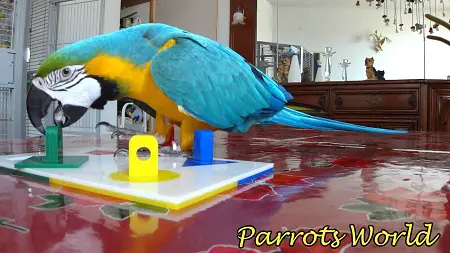
При домашнем содержании попугай ара ведет себя в любой ситуации, словно он хозяин положения. Умеет выкрутиться в сложных условиях, не позволяет собой командовать. При должном воспитании с арой легко договориться. Если своевременно начать приручение и дрессировку, можно вырастить отличного трюкача, готового выполнять команды и решать логические задачи.
Ара обладают способностью разговаривать. Это не тот осмысленный разговор, который умеет вести попугай жако, но вполне различимые фразы и слова. Некоторые особи произносят заученные слова к месту, и кажется, что они применяют их по смыслу разговора. Птицы могут «петь» (передают голосом мелодию), танцевать в такт музыке. Это подтверждает, что уровень интеллекта у них достаточно высок.
Темперамент попугая Ара
Ара игривы и активны, и у них яркий характер, соответствующий их размеру
Ухоженный ара, получающий соответствующее питание, умственную стимуляцию, внимание и много места для упражнений, становится уникальным, долгоживущим компаньоном, ласковым и преданным
Однако их размер и характер также могут сделать их сложными домашними питомцами.
Ара, которые не обрабатываются регулярно или имеют гормональный дисбаланс, резкие изменения обстановки или отсутствие умственной нагрузки, могут стать агрессивными, территориальными, деструктивными и проблемными.
Дрессировать этих умных птиц лучше всего с рождения. Раннее обучение должно быть сосредоточено на кормлении с рук, а не на кусании или укусе, без крика и, в конечном итоге, на обучении птицы говорить или петь.
По мере того, как вы налаживаете взаимопонимание с птицей, вы можете даже шутить и наслаждаться различными видами интерактивной игры.
Alicia Florence
Alicia Florence is a famous undine from the Aria Company. Known for her exceptional skill in rowing a gondola, Alicia became the youngest Undine to be promoted to the position of Prima. She replaced the senior Undine Anna, who had already retired and married. Alicia wears the standard blue and white Aria uniform and has long, yellow hair braided at the front.
Alicia’s character has a rather varied background. She is an experienced voice actress and has portrayed many notable roles, such as the water faerie Yuuko. Though similar to the character of Yuuko-san from the previous series, Alicia is quite different from her character in the anime. Nevertheless, Alicia’s role is an important one for the character. She has worked on several animated series and movies as a voice actress.
ARIA is set in the futuristic city of Neo-Venezia, which is a replica of the original on terraformed Mars. The story of Alicia Florence’s character, Aika, is mainly about a stalker, but her appearances are often sudden. Similarly, the aesthetics of the anime are reminiscent of Venice. However, some characters are more interesting than others. You can tell that Alicia Florence is a talented young artist just by looking at her work.
Aria’s first appearance was in season one when she was fifteen. She was promoted to Prima when she was fifteen. She was left in the care of the Aria Company after her grandmother’s death. Despite being an unlucky undine, she can maintain a stable income. Her relationship with Al makes the Aria Company a worthwhile investment. Aika’s rivalry with Aika only further entices her to leave.
Alicia Florence is a charismatic and likable character, a young woman who runs the small Aria Company, where only two people work. She has just hired an apprentice named Akari Mizunashi to join her team. The plot of the series revolves around the development of their relationship. As the two become more acquainted, Akari pursues her dream of becoming a Prima gondolier. She also makes friends with other apprentices from rival companies, which gets her screen time.
What is the origin of Ara Ara?
The expression is ancient and can be found in many records from the 1200s, but its original meaning may differ significantly from the present one.
The phrase is often used in a seductive and flirtatious way, but in reality it has always been on the lips of the people, especially Japanese ladies. Only today, because of anime and manga, the word ended up falling more into the vocabulary of young people.
Although the exact origin of the phrase is unknown, the expression “Ara Ara” has appeared in countless manga and anime series and became popular on the internet after 2008 by the forums like 4chan.
Despite the expression being seen in anime since before 2000, only now the term has gone viral as a meme, mainly because of TikTok and Streaming games from TV channels. anime characters.
Recently, characters from Kimetsu no Yaiba and Hataraku Saibou were also responsible for making the expression ara ara even more viral.
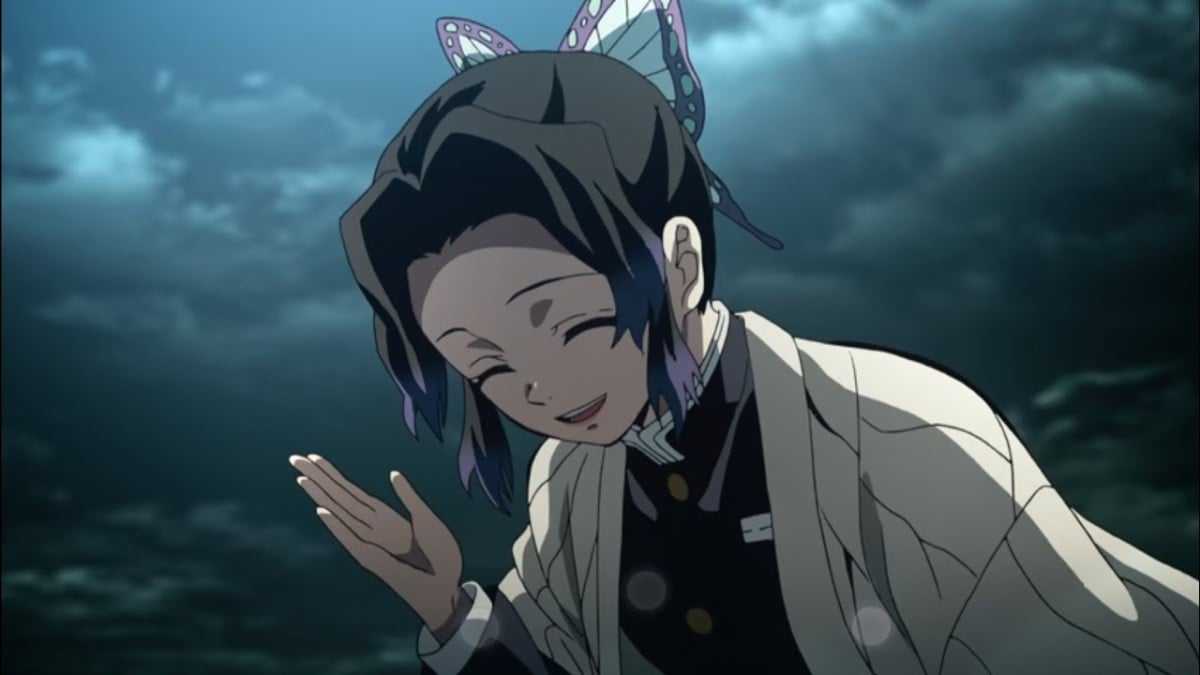
ара в разных странах
Bulgaria
ар
Австралия
ara, macaw
Австрия
ara
Американское Самоа
ara, macaw
Ангилья
ara, macaw
Ангола
ara, arara
Антигуа и Барбуда
ara, macaw
Аргентина
guacamayo, ara
Аруба
ara
Багамы
ara, macaw
Барбадос
ara, macaw
Белиз
ara, macaw
Бельгия
ara
Бенин
ara
Бермуды
ara, macaw
Боливия
guacamayo, ara
Ботсвана
ara, macaw
Бразилия
ara, arara
Британская Территория в Индийском Океане
ara, macaw
Британские Виргинские Острова
ara, macaw
Буркина Фасо
ara
Бурунди
ara
Венгрия
kor
Венесуэла
guacamayo, ara
Виргинские Острова (США)
ara, macaw
Габон
ara
Гайана
ara, macaw
Гамбия
ara, macaw
Гана
ara, macaw
Гваделупа
ara
Гватемала
guacamayo, ara
Гвинея
ara
Гвинея-Бисау
ara, arara
Германия
ara
Гернси
ara, macaw
Гибралтар
ara, macaw
Гондурас
guacamayo, ara
Гонконг
金刚鹦鹉
Гренада
ara, macaw
Греция
μακώ
Гуам
ara, macaw
Дания
ara
Демократическая Республика Конго
ara
Джерси
ara, macaw
Джибути
ara
Доминика
ara, macaw
Доминиканская республика
guacamayo, ara
Замбия
ara, macaw
Зимбабве
ara, macaw
Индия
ara, macaw
Ирландия
ara, macaw
Испания
guacamayo, ara
Италия
ara, macaw
Кабо-Верде
ara, arara
Камерун
ara, macaw
Канада
ara, macaw
Кения
ara, macaw
Кипр
μακώ
Кирибати
ara, macaw
Китай
金刚鹦鹉
Колумбия
guacamayo, ara
Королевство Эсватини
ara, macaw
Коста-Рика
guacamayo, ara
Кот-д’Ивуар
ara
Куба
guacamayo, ara
Кюрасао
ara
Лесото
ara, macaw
Либерия
ara, macaw
Лихтенштейн
ara
Маврикий
ara, macaw
Мадагаскар
ara
Майотта
ara
Макао
金刚鹦鹉
Мали
ara
Мартиника
ara
Мексика
guacamayo, ara
Микронезия
ara, macaw
Мозамбик
ara, arara
Монако
ara
Монтсеррат
ara, macaw
Намибия
ara, macaw
Нигер
ara
Нигерия
ara, macaw
Нидерландские Антильские острова
ara
Нидерланды
ara
Никарагуа
guacamayo, ara
Новая зеландия
ara, macaw
Остров Мэн
ara, macaw
Остров Норфолк
ara, macaw
Остров Рождества
ara, macaw
Остров Святой Елены
ara, macaw
Острова Кайман
ara, macaw
Острова Кука
ara, macaw
Панама
guacamayo, ara
Папуа Новая Гвинея
ara, macaw
Парагвай
guacamayo, ara
Перу
guacamayo, ara
Питкэрн
ara, macaw
Польша
ar
Португалия
ara, arara
Пуэрто-Рико
ara, macaw
Республика Конго
ara
Реюньон
ara
Сальвадор
guacamayo, ara
Сан-Марино
ara, macaw
Сан-Томе и Принсипи
ara, arara
Сейшелы
ara, macaw
Сен-Бартелеми
ara
Сен-Мартен
ara
Сен-Пьер и Микелон
ara
Сенегал
ara
Сент-Винсент и Гренадины
ara, macaw
Сент-Китс и Невис
ara, macaw
Сент-Люсия
ara, macaw
Синт-Мартен
ara
Словакия
papagáj
Соединенное Королевство
ara, macaw
Соединенные Штаты Америки
ara, macaw
Соломоновы Острова
ara, macaw
Суринам
ara
Сьерра-Леоне
ara, macaw
Тайвань
金刚鹦鹉
Теркс и Кайкос
ara, macaw
Того
ara
Тринидад и Тобаго
ara, macaw
Турция
amerika papağanı
Уганда
ara, macaw
Украина
ара
Уругвай
guacamayo, ara
Фиджи
ara, macaw
Фолклендские острова
ara, macaw
Франция
ara
Французская Гвиана
ara
Французская Полинезия
ara
Французские Южные и Антарктические территории
ara
Центрально-Африканская Республика
ara
Чад
ara
Чехия
papoušek, ara
Чили
guacamayo, ara
Швейцария
ara
Эквадор
guacamayo, ara
Экваториальная Гвинея
guacamayo, ara
Южная Георгия и Южные Сандвичевы Острова
ara, macaw
Южный Судан
ara, macaw
Ямайка
ara, macaw
Уход и питание
Красным ара требуется большая просторная клетка. Эти попугаи могут быть достаточно шумными, поэтому разместить клетку следует в таком месте, где крик вашего питомца не потревожит соседей. В клетке должна быть большая крепкая жердь, сделанная из ветки плодового дерева. Жердь нужно периодически менять, так как попугаи любят ее грызть. Посуду для еды и воды лучше разместить по бокам клетки подальше от жерди, чтобы птичий помёт не попадал на корм попугая. Клетку следует оборудовать различными приспособлениями для развлечения, а также игрушками для жевания. Красных ара, как и других их сородичей, нужно выпускать из клетки ежедневно на 2-3 часа. Если позволяют погодные условия, попугаев можно держать в уличном птичьем вольере.
В своей естественной среде обитания красные ара питаются разнообразием орехов, фруктов, семян и растительности. В неволе рацион этих попугаев составляют готовые зерновые корма и пеллеты. Они также могут употреблять в пищу любые питательные продукты, которые едят люди.
The meaning of Ara [荒ら]
The expression ara ara is spoken when you are impressed or surprised by something. It is mainly used by women.
Ara ara not only expresses a little surprise but also a lovely feeling. It can sometimes be used sarcastically, to make fun of and incite someone.
This idiomatic expression is intended to present a tone of surprise, and may contain a slightly sarcastic intent. It would sound like «Oh», «Oh well», «Oh heavens» and «Oh my god».
When consulting the Japanese dictionary, we have the following definition for ara : oh; ah
Concerning the junction of ara ara, we can find words that approximately, but combined with become an adjective meaning rough, hard or wild.

Different Meanings of Ara
The term ara separately can mean many things, especially if it is written with different ideograms. It can refer to the name of a fish or even the a person’s last name.
In the southern region of Japan, mainly in the Okinawa region, dialects such as Miyako and Ryukyuan use the word ara written in hiragana to indicate the skin of a fruit.
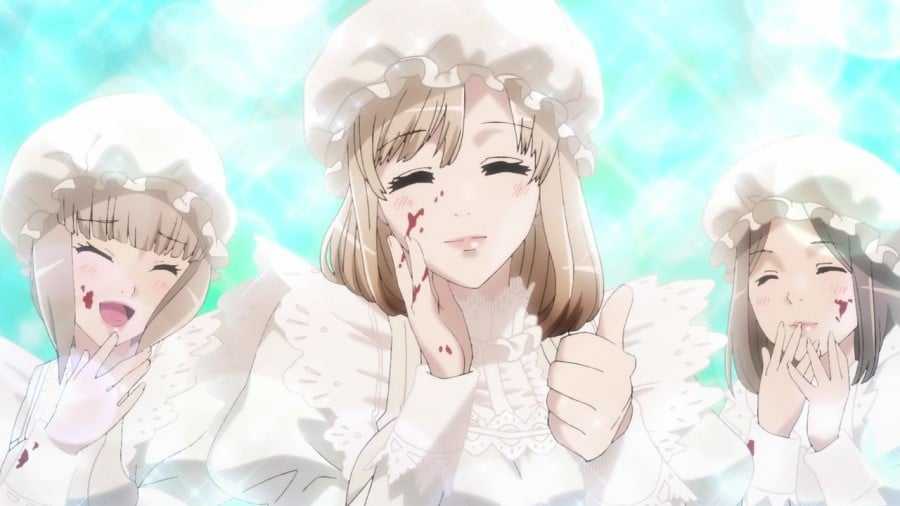
Кто такие девушки ара-ара
В Сети появилось специальное название для блогерш, которые на стримах говорят «ара-ара» — ара-ара гёрлс или девушки ара-ара. Стоит им задонатить, и они тут же произнесут сексуальный звук из аниме.
https://youtube.com/watch?v=diioRPYBL9k
Хотя главное для ара-ара гёрл — это хорошее произношение и аутентичное звучание, также большое значение имеет внешность. Девушки ара-ара одеваются в стиле героинь аниме и ахегао-тян, о которых писал Medialeaks. Зачастую они выглядят подчёркнуто сексуально. Иногда блогерши красят волосы в розовый или надевают милые кошачьи ушки из меха.
 Как одеваются ара-ара гёрлс
Как одеваются ара-ара гёрлс
Сходство с аниме-персонажами подчёркивает правильный макиях. Большие чёрные стрелки и тушь иллюзорно увеличат глаза, этот эффект можно усилить при помощи крупных линз. На щеки необходимо нанести немного румян и обойтись светлой помадой или блеском для губ.
 Макияж ара-ара гёрлс
Макияж ара-ара гёрлс
Девушки ара-ара стали героинями мемов, в пикчах и видео они впечатляют парней отличным произношением японской фразы.
Говорить «ара-ара» на стримах и в тикток-видео стало настолько популярно, что в Сети образовалась целая субкультура из девушек ара-ара. С помощью фразы из аниме они оттачивают своё произношение и зарабатывают известность.
Пока одни блогерши собирают донаты благодаря аниме, другие привлекают внимание дерзким стилем e-girl, о котором ранее рассказывал Medialeaks
What Is the Male Equivalent for Ara Ara?
As the word has been coined in anime to only suit being used by females, men might feel like they need their own version of “ara ara” that’s socially acceptable.
A lot of otaku forums and anime fans argue strongly that “yare yare” is the male equivalent of ara ara.
They don’t literally mean the same thing but are often used in the same situation. Except “yare yare” is used by older men to refer to brash younger women but only the ones they secretly feel endeared to.
Based on the context, “yare yare” means “good grief” or “thank goodness.” It’s not a flirtatious word like ara ara, instead it’s both sarcastic and affectionate at the same time.
Men are notorious for hiding their true emotions. So if you hear a “yare yare” from a guy, he probably enjoys your silliness and pretends to be tired of it.
What Are the Alternatives to Ara Ara?
In the English language, there are several words you could use in the same context as ara ara:
• Oh my
• Gosh
• Golly
• No way
• Woah
• My my
There are also a number of Japanese alternatives:
• Sugoine: Meaning, “that’s incredible” or “unbelievable” and is used to express genuine excitement.
• Majide: Which asks the question “Really?” If you want to interject sarcastically, this is the one to go with.
• Uwa: The Japanese version of “Wow.”
There are probably far more than the ones mentioned here. Your best reference for some solid alternatives is anime. For a rich source of ara ara’s and alternatives, try Kawaii. It’s the cuteness genre of anime that focuses heavily on cute emotive characters having cute emotive interactions.
Kurumi Tokisaki
As a spirit, Kurumi Tokisaki ara can manipulate time and shadows with bullets. This enables her to use the twelfth bullet of the Angel to kill the First Spirit before it causes the first Spacequake. However, she can also control time and shadows using Reiryoku as fuel. To fight this being, she uses a flintlock pistol and a musket with various types of bullets, each with different effects.
Before becoming a Spirit, Kurumi was human. She was born into a wealthy family and was adored by her parents. However, a monster attacked her one day, and a girl in a light dress rescued her. She was introduced as “Mio Takamiya,” an ally of justice. She was offered a mighty new power in exchange for helping her. She accepted the power offered and became a Spirit.
A few of her other traits are her love of cats. She has a soft spot for them and has killed four humans for the sake of a kitten. She is a bit embarrassed by this and hopes that this will not ruin her reputation. Shido can communicate with one of her various timelines and almost convinces her to live everyday life. It is not clear which of Kurumi’s other traits she will adopt in her new life.
The third and final Spirit of the Date A Live franchise, Kurumi, is known for being the most lethal of all the Spirits. She has killed more than ten thousand people, and she was responsible for many of them when she first appeared on Earth. She is also one of the few Spirits that actively kills people with her powers, killing her victims by dragging them to the shadowers that eat them, which allows Kurumi to release her powers.
Everyday use of Ara-Ara is by Kurumi Tokisaki in the anime series “Date a Live” and the manga “Aria.” As the most famous character to perform this gesture, Kurumi Tokisaki has been a part of the anime series since its beginning. However, despite the popularity of Ara-Ara, it is still unclear how the character chose the name to use.


























